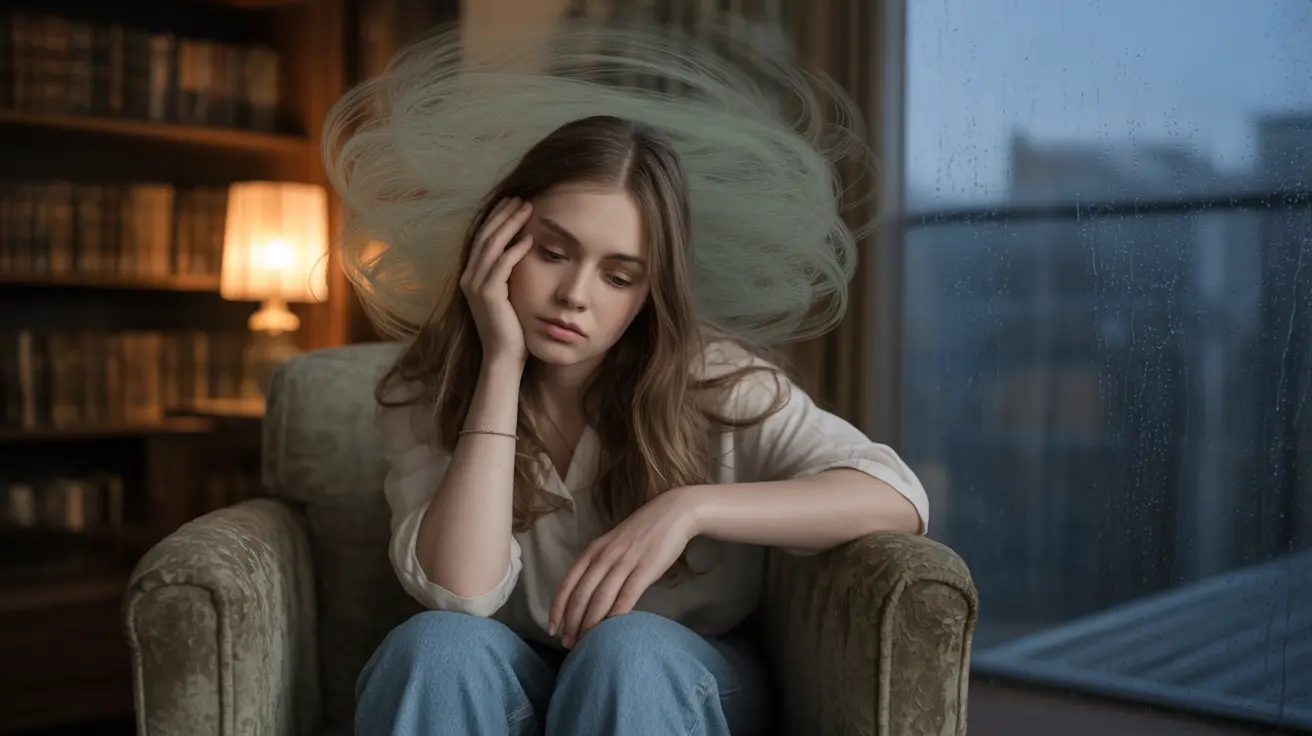Living with anxiety can take a significant toll on both your mental and physical well-being, often leading to overwhelming fatigue. This complex relationship between anxiety and tiredness affects millions of people, making everyday tasks feel increasingly challenging. Understanding why anxiety makes you tired and how to manage this exhaustion is crucial for maintaining your quality of life.
When anxiety strikes, your body goes through numerous physiological changes that can drain your energy reserves and leave you feeling exhausted. This article explores the connection between anxiety and fatigue, offering insights into why you feel tired and what you can do about it.
The Physical Impact of Anxiety on Energy Levels
Anxiety triggers your body's stress response, releasing hormones like cortisol and adrenaline that prepare you for "fight or flight." While this response is natural, prolonged anxiety keeps your body in a constant state of high alert, leading to:
- Muscle tension and physical strain
- Increased heart rate and blood pressure
- Rapid breathing and heightened metabolism
- Digestive system changes
These physical responses consume significant energy, explaining why anxiety often leaves you feeling drained and exhausted. Your body is essentially running a marathon when it's in an anxious state, even if you're physically still.
The Mental Toll of Anxiety
The mental aspects of anxiety can be equally draining. Common mental experiences that contribute to fatigue include:
- Racing thoughts and worry
- Difficulty concentrating
- Constant mental vigilance
- Emotional processing
- Decision fatigue
These cognitive demands require substantial mental energy, often leaving you feeling mentally exhausted even after periods of rest.
How Anxiety Disrupts Sleep
One of the most significant ways anxiety contributes to fatigue is through its impact on sleep. Anxiety can:
- Make it difficult to fall asleep
- Cause frequent night-time awakening
- Reduce sleep quality
- Create tension that prevents proper rest
- Lead to racing thoughts at bedtime
This disrupted sleep pattern creates a cycle where anxiety causes poor sleep, and poor sleep increases anxiety, leading to chronic fatigue.
Managing Anxiety-Related Fatigue
Immediate Relief Strategies
When anxiety-related tiredness hits, these techniques can help:
- Deep breathing exercises
- Progressive muscle relaxation
- Short power naps (15-20 minutes)
- Gentle stretching
- Mindfulness meditation
Long-term Management Approaches
For sustainable energy management with anxiety, consider:
- Establishing a consistent sleep schedule
- Regular physical exercise
- Balanced nutrition
- Stress management techniques
- Setting boundaries to prevent overwhelm
When to Seek Professional Help
Consider consulting a healthcare provider if you experience:
- Persistent fatigue that doesn't improve with rest
- Severe anxiety symptoms that interfere with daily life
- Chronic sleep problems
- Physical symptoms that worry you
- Difficulty managing anxiety on your own
Frequently Asked Questions
- How does anxiety cause tiredness and fatigue in the body and mind?
Anxiety causes fatigue through constant activation of the stress response system, which depletes energy resources. The physical tension, elevated heart rate, and racing thoughts associated with anxiety all consume significant energy, leading to both physical and mental exhaustion.
- Why do I still feel tired even after resting when I have anxiety?
Even during rest, anxiety keeps your body and mind in an activated state, preventing true relaxation. The ongoing mental activity and physical tension make it difficult for your body to properly recharge, leading to continued fatigue despite attempts to rest.
- How does anxiety affect sleep and contribute to feeling exhausted?
Anxiety can make it difficult to fall asleep, stay asleep, and achieve quality rest. It often leads to racing thoughts at bedtime, midnight awakening, and shallow sleep, all of which contribute to feeling exhausted the next day.
- What are effective ways to manage and reduce tiredness caused by anxiety?
Effective management strategies include establishing a regular sleep schedule, practicing relaxation techniques, engaging in regular physical activity, maintaining proper nutrition, and using stress management tools like meditation or deep breathing exercises.
- When should I see a doctor if anxiety-related fatigue does not improve?
Seek medical help if your fatigue persists despite self-care measures, if it significantly impacts your daily functioning, or if you experience additional concerning symptoms. A healthcare provider can evaluate your symptoms and recommend appropriate treatment options.




